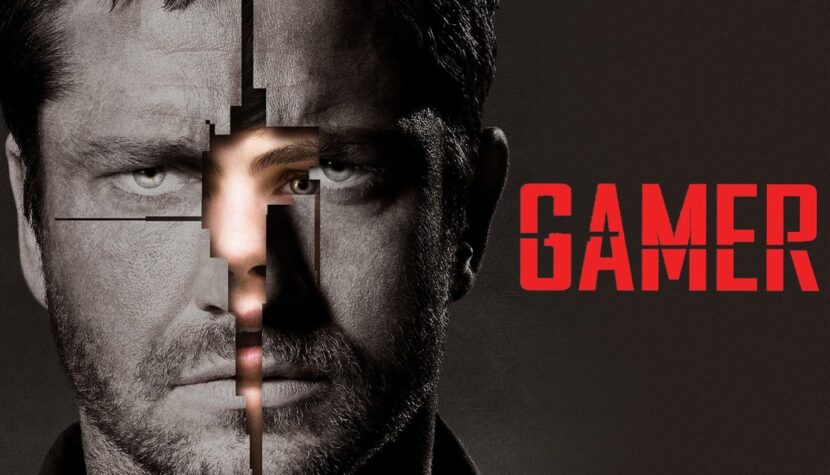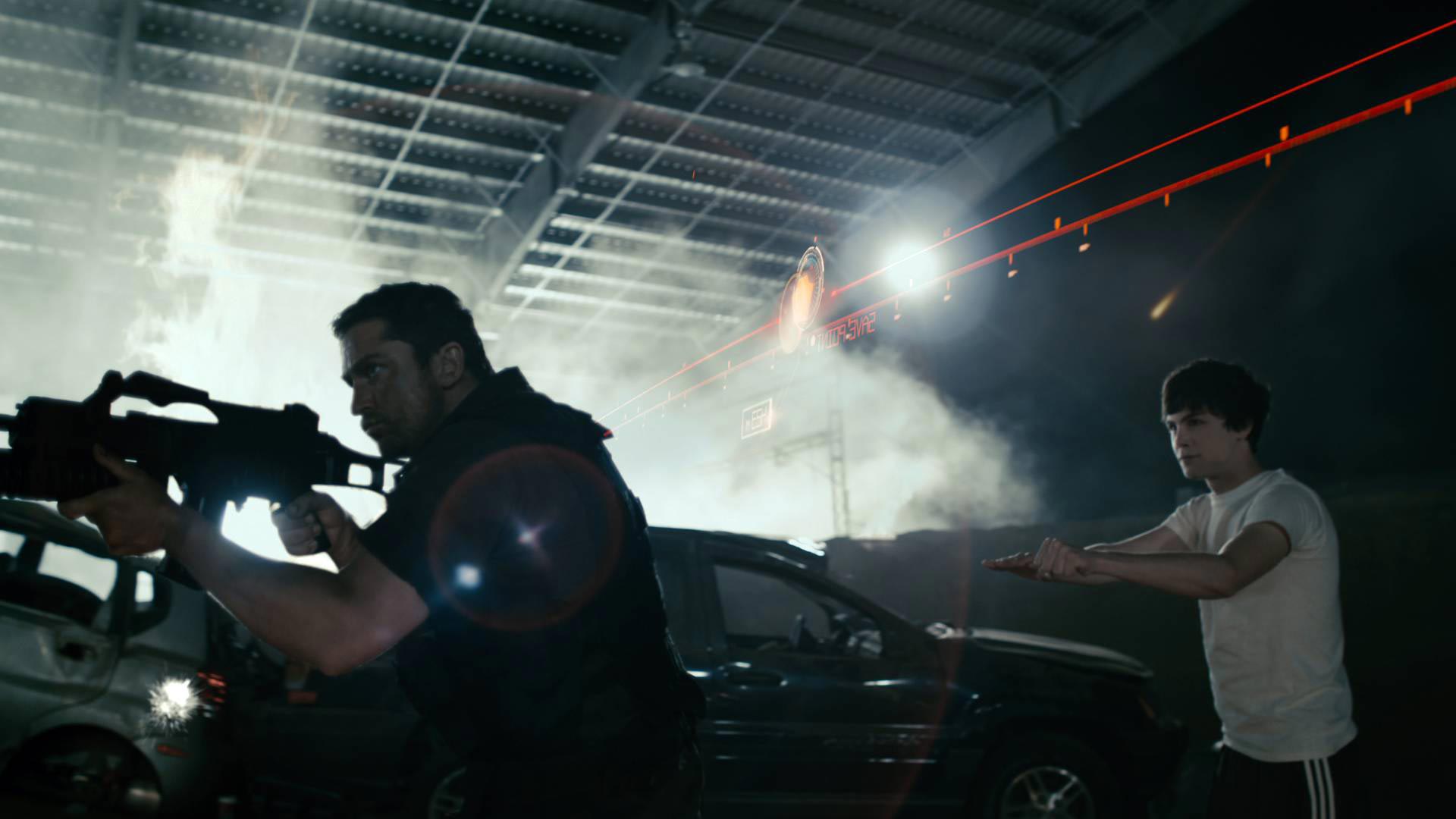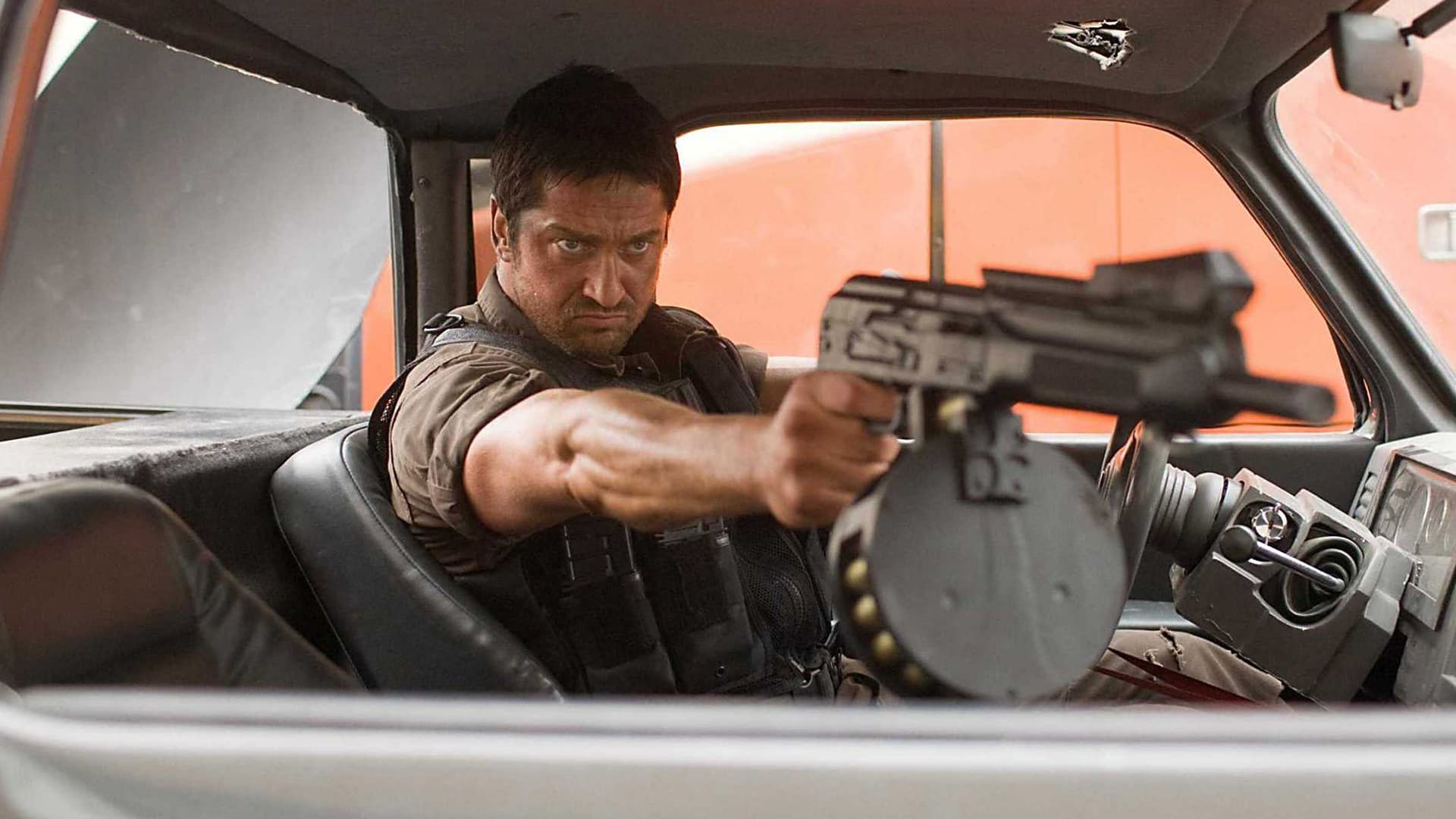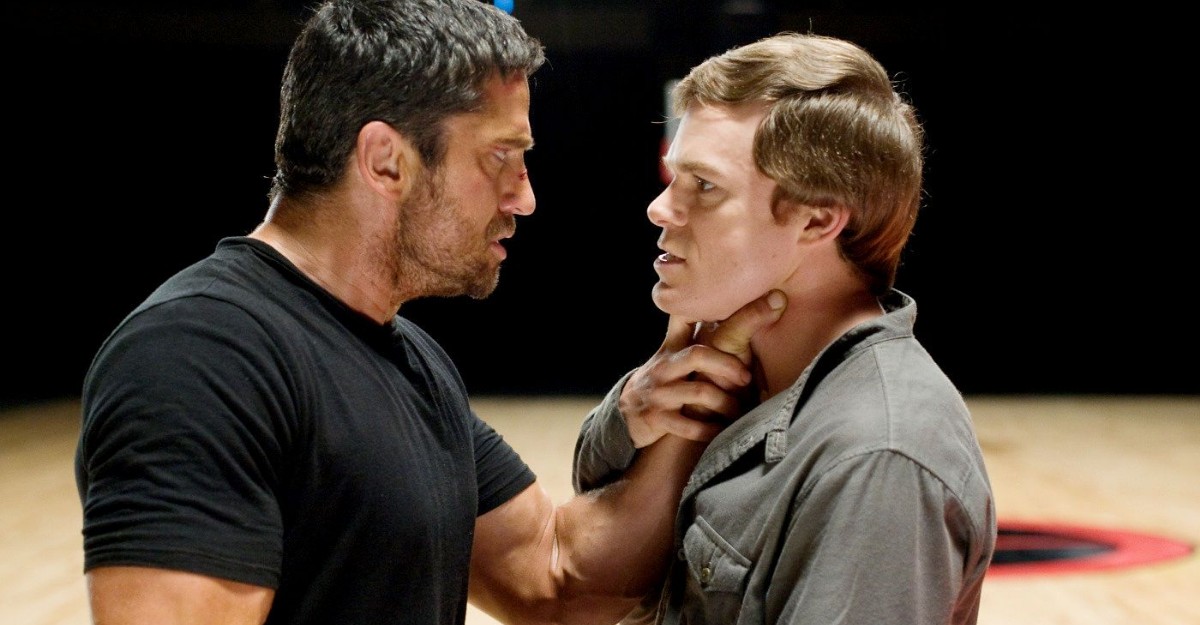GAMER. Straightforward cyberpunk entertainment

In Gamer, we witness a cyberworld where people have transferred their lives to a virtual community, where they can embody any chosen living person, and going further – even assume the role of their own assassin.
The Game…
Ken Castle (Michael C. Hall, known for his role in Dexter) has created a new technology that allows players to derive even greater satisfaction from gaming. How? Instead of controlling some unreal athlete with an infinite number of lives, we have a real human being who has been implanted with a nanocell in the brain cortex, enabling full control over our chosen avatar. The most successful game is Slayer, in which convicts, armed, fight for their freedom – if you survive 30 rounds, you go free. How can this be legal? The creator of the entire game has a contract with the government, and the society has allowed such activity through a referendum. Coincidentally, one of the players has already survived 28 such duels. Kable (Gerard Butler), because that’s who we’re talking about, was framed for murder and wants to regain his family and freedom at any cost.

The duo of Brian Taylor and Mark Neveldine have accustomed us in their films to the image of a person fighting for their independence. Both in Crank and in Gamer, we saw heroes that others seek to control. In the latter, the influence of a somewhat forgotten 1987 movie titled The Running Man, starring Arnold Schwarzenegger, is very clear. It’s a classic action film, a VHS-era cult favorite, presenting a pessimistic vision of a world consumed by entertainment, where an honest person must fight for their reputation in a deadly game show. All of this is happening with the acceptance and satisfaction of the authorities.

…and the Gamer
While watching Gamer, it’s worth paying attention to how individuals in front of the screen are portrayed. Most often, they are depicted as repulsive perverts, sick people, introverts, or teenagers seeking additional excitement, unaware that real people are dying on the other side. “The game must evolve,” says one of the characters, and it’s easy to notice that it’s not just about the game. People are evolving – their emotions, expectations, and needs. Simple entertainment is no longer enough for them; they constantly crave more, leading to complete dumbing down and a lack of any moral principles. It’s fair to admit that this isn’t a very complex vision of the future, but it’s quite distinct, reaching directly into the grim atmospheres of classic cyberpunk genre. Dark, gloomy, with a clearly outlined social backdrop. It’s just a pity that more ambitious themes quickly give way to standard action. While it’s true that the action is intense, filled with thousands of bullets and dozens of explosions, one might hope for a more ambitious treatment of the cyberworld.

Dramatis personae
The weakest – or more precisely, the most disappointing – aspect of Taylor and Neveldine’s production is the acting of the main characters. Michael C. Hall, after his excellent television roles in Dexter and Six Feet Under, slips into the role easily but very predictably – his portrayal is exaggerated and his demonism feels artificial. Leonidas doesn’t fare much better – stern expressions, a bit of shouting, a showcase of physical prowess. These were not very demanding performances. However, even with one-dimensionality, it’s possible to handle things much better, finding the key to the role, going beyond the cliché. Butler and Hall completely missed the mark in the film, not engaging too much, as if they were just cashing a bigger check. What a shame.

Gamer had a budget of $50 million, which didn’t allow the creators to utilize 3D technology, even though they initially had such a plan. And perhaps it’s good that no one had the idea to invest more funds, as the film didn’t even cover its costs, earning only $40 million. After its release in the USA, critics didn’t hold back their sharp words about Gamer, calling it a “copy of everything.” I mentioned that inspirations from The Running Man are evident, but keen observers will find elements from movies like The Matrix or Rollerball. It’s a mishmash of everything.
Still, I believe it’s a decent action film with very well-selected music (especially the song Sweet Dreams by Marilyn Manson). It’s straightforward entertainment for a boring afternoon, something we don’t need to focus much on. After all, I don’t think anyone truly believes that anyone will allow such a kind of cyberworld in the future. Probably.

